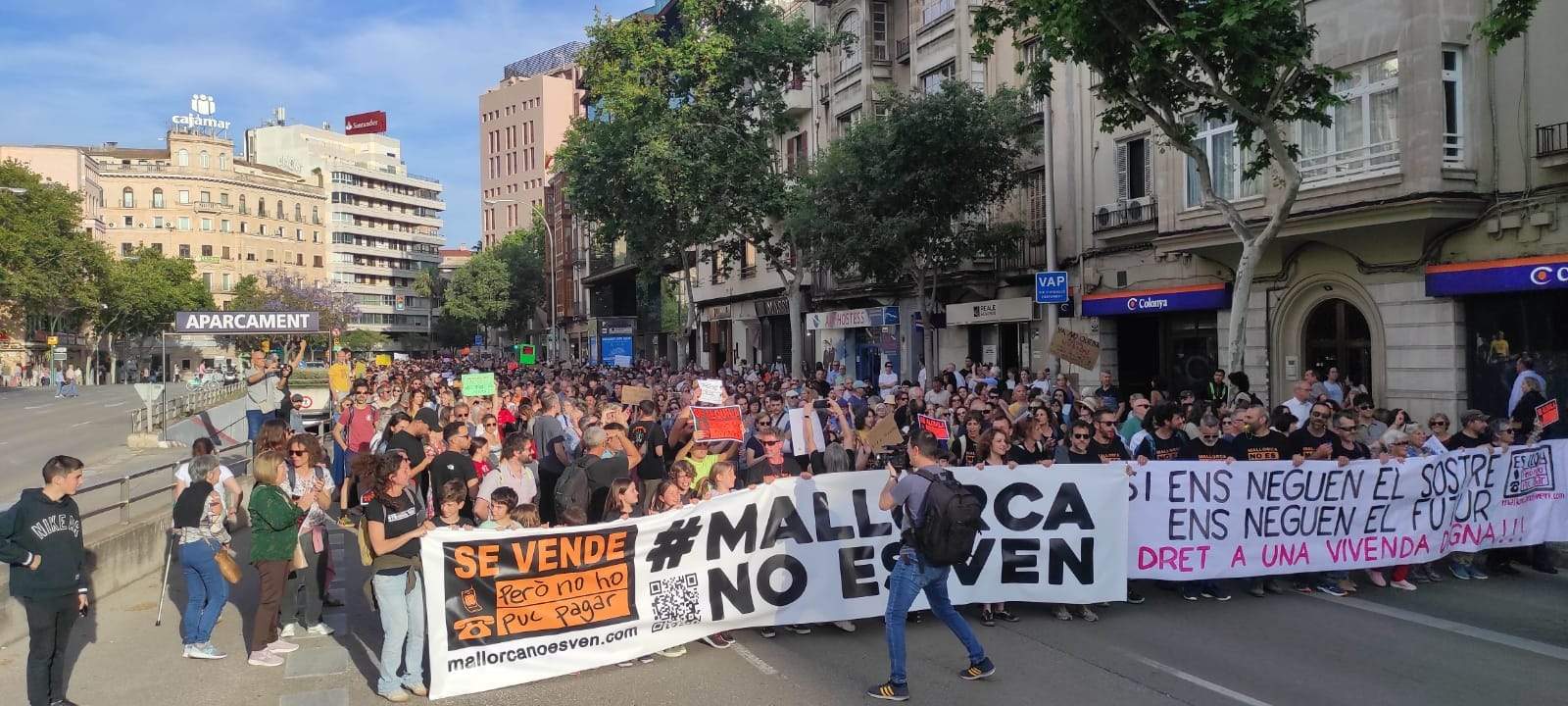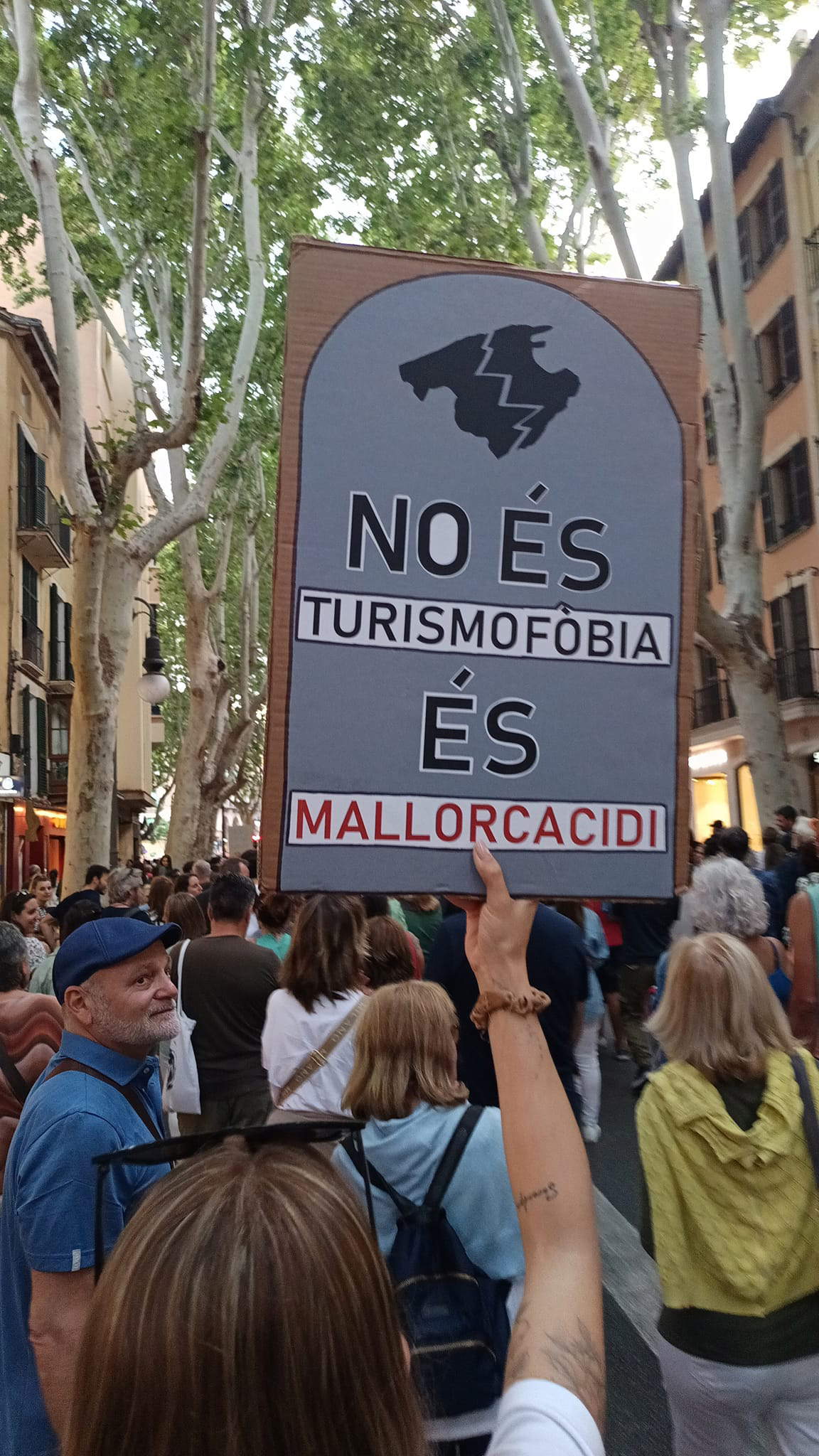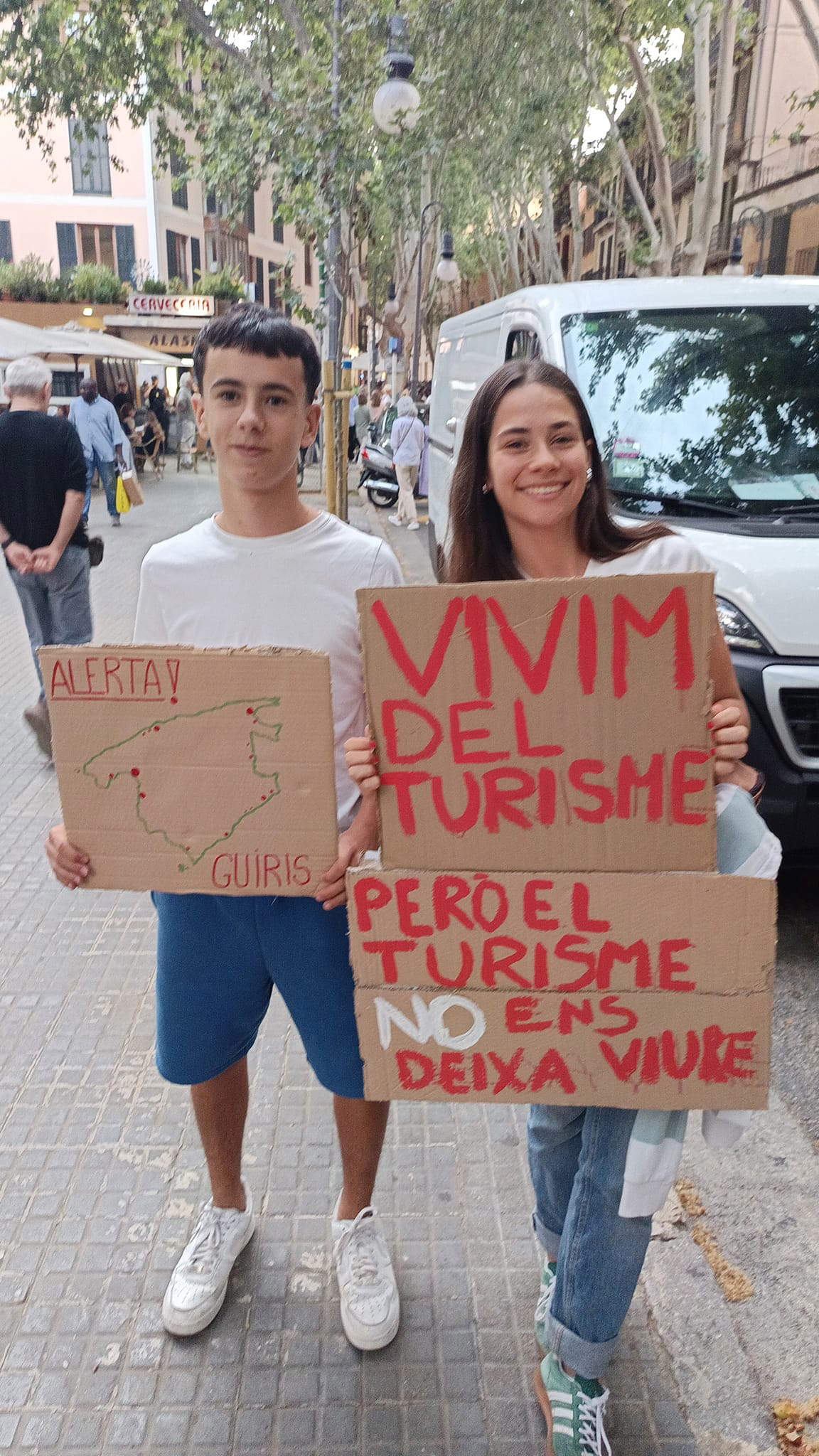After Barcelona and the Canary Islands, the Balearic Islands are also taking measures to curb tourism: on May 25 in Plaça d’Espanya in Palma de Mallorca there was a large demonstration organized by residents (there are just under a million on the island of Mallorca) who complain of a worsened quality of life due to too many visitors. A “historic demonstration” headlines the local newspaper Ultima Hora, which speaks of “more than 10,000 people protest against mass tourism and for the right to decent housing” (at the same time a demonstration also took place in Menorca and the previous day in Ibiza). Images of the protest speak for themselves: men women and children with signs and slogans “Majorca is not for sale” poured into the streets en masse on a now summery Saturday afternoon with more than 31 degrees, amid the faces of unconcerned tourists dining at roadside tables.
Residents’ discontent prompted a few days ago the president of the Consell de Mallorca, Llorenç Galmés, to ’cancel’ 18 thousand beds of the 430 thousand available in Mallorca. Eliminating the root of the problem by decreasing the accommodation supply is a clear attempt to give a signal because the large number of visitors to the island (suffice it to say that in 2023 arrivals were 17.8 million against the 10 million recorded in 2006. There were 85.1 million total tourists in Spain in 2023 (a historic national record). The governor of the Balearic Islands, Marga Prohens, is also on the same wavelength, warning that the archipelago has reached “the limit of capacity.”
The uninterrupted flow of tourists is making residents who do not make a living from tourism suffer the consequences of ever-higher prices for living and eating: residents of Mallorca, Menorca, Ibiza and Formentra are seeing affordable homes disappear from the market. It is estimated that more than half of rental properties are being used as vacation homes. The Spanish archipelago is taken by storm with attestation coming from the airport’s air traffic: 20 million passengers carried making it Spain’s third busiest airport, with 36 landings per hour. Flights mostly from Germany, the United Kingdom, and Italy. Tourism accounts for 45 percent of the Balearic Islands’ gross national product (Excellator data), which last year was the second most popular tourist area in Spain, after Catalonia, where Barcelona is located.



Buzzwords in the square were “enough of tourist overcrowding,” “enough of the destruction of the territory.” Organizers say “enough of the lack of protection suffered by the people who live on the islands. We must hold the institutions accountable, because we want to live in our home, to protect our lives, and because we do not want Mallorca to become a luxury resort. For the right to housing, for the protection of the land, our language and culture.” Last month it was Canary Islanders who took to the streets with the same demands; there were more than 50,000 of them.
Young people who cannot afford to buy an apartment in Palma de Mallorca, houses in the Gènova neighborhood that cost no less than 700 thousand euros, residents bombarded with requests to buy their homes from real estate agencies that would put them on the tourist rental market. As Ultima Hora reports, Victoria and Aina, residents of Gènova, say, “In our neighborhood the prices are prohibitive. You can’t buy anything for less than 700,000 euros. There are only a few Majorcans left. On my street there is not a single Spaniard.” Estefanía, 32, lives with her mother in s’Arenal. There, a rent costs between 1,300 and 1,500 euros. She has been working since she was 18 and said, “my salary is not enough to become independent with my partner.” Another 35-year-old couple, Sònia and Marc, have parents between Sencelles and Puigpunyent, and there is no place for young people in those villages: “They are exorbitant prices, it is very difficult for us to buy anything.”
The organizers, as stated in their manifesto, propose that the government declare a housing emergency in all the islands; pass a moratorium on tourist rentals and give guarantees to tenants; obtain relocation of people evicted due to inability to pay rent, as already provided by law; restrict the purchase of houses by people who do not have a minimum of five years of residence; and restrict the purchase of houses to large landlords.
The protest took place on islands that have for years solidified the profile of the summer vacation with the quintessential international nightlife between parties, disco dancing and beach dancing. But the ways of partying are also to be toned down. Indeed, bans have also been introduced on alcohol consumption, evidently considered a cause of discomfort for residents and a defining element of the collective imagination of parties here on vacation. In an attempt to change the pattern of the typical vacationer in Ibiza and Mallorca, alcohol consumption on the street from 9:30 p.m. to 8 a.m. has been banned under penalty of fines ranging from 500 to 1,500 euros with an extension and tightening of the law passed as early as 2020. Starting in mid-May, parties with open bars, that is, unlimited consumption of alcoholic beverages after paying admission, are banned, as well as rounds between clubs with drinking included in the purchase of a single package. There will be a division by zones where the movida ones (such as Playa de Palma and Magaluf in Mallorca and Sant Antoni in Ibiza) will have strict restrictions, and considering that people are mostly from foreign countries it has already been explained that the fines will also be notified to the respective embassies.
The ban also applies to boats hosting parties on board (many of them) with alcohol sales: they will not be able to station themselves within one mile of the designated areas with alcohol prohibition, let alone be allowed to embark or disembark. Another harsh measure taken to limit and manage tourist flows is the restriction of access to the historic center of Binibeca Vell on the island of Menorca since May 1. There were 800,000 tourists visiting each: too many according to residents who meticulously tend the 195 ’white houses’.
 |
| Balearic Islands, tourism causes a flood of problems. Residents' protests and draconian measures |
Warning: the translation into English of the original Italian article was created using automatic tools. We undertake to review all articles, but we do not guarantee the total absence of inaccuracies in the translation due to the program. You can find the original by clicking on the ITA button. If you find any mistake,please contact us.